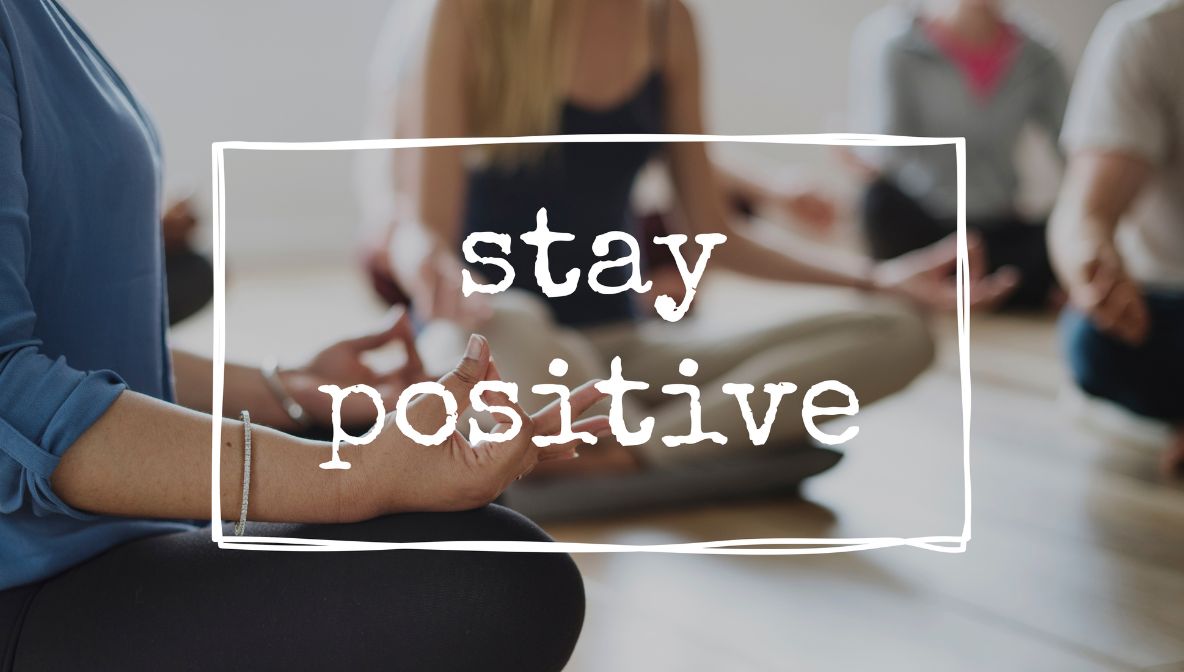In today’s fast-paced world, maintaining a positive mindset is more important than ever. With stress and negativity surrounding us daily, it’s essential to focus on fostering mental well-being. Positive mindset practices help combat stress, improve emotional health, and ultimately lead to a happier life.
Key Points:
- A positive mindset encourages better decision-making and emotional stability.
- Simple daily practices can significantly reduce stress and improve mental clarity.
- Positive thinking helps create long-term habits for overall well-being.
How Can Positive Mindset Practices Improve Mental Health?
Positive mindset practices have a profound impact on mental health. Research has shown that practicing positivity can reduce stress, anxiety, and depression. By focusing on the positive aspects of life, individuals can shift their thought patterns, leading to a more optimistic outlook on life.
For instance, a person who consciously practices gratitude may find it easier to focus on the positive aspects of their life rather than dwelling on the negative. This shift can lead to increased feelings of happiness, better coping mechanisms, and improved emotional resilience. Moreover, a positive mindset can create a more peaceful and fulfilling day-to-day experience.
Note: A positive mindset can be contagious, spreading to others and improving relationships.
Note: It’s essential to incorporate these practices into your daily routine for maximum results.
What Are the Most Effective Positive Mindset Practices?
Several positive mindset practices can make a significant difference in your life. Here are some of the most effective ones:
1. Daily Gratitude Practice
Taking a few minutes each day to reflect on what you’re grateful for can help shift your focus away from negativity. Gratitude practices can be done in many forms, from journaling to simply listing three things you’re grateful for each day. This habit can help individuals feel more grounded and appreciative of the small joys in life.
2. Positive Affirmations
Using positive affirmations allows you to reprogram your subconscious mind. By repeating positive statements like, “I am confident,” or “I am worthy,” you can replace self-doubt and negativity with empowering beliefs. This simple practice helps build self-esteem and fosters a more positive outlook.
3. Mindfulness Meditation
Mindfulness meditation encourages you to stay present in the moment, letting go of stress and worries. Practicing mindfulness can help you regulate emotions and develop mental clarity. Over time, it can improve your response to difficult situations, making it easier to maintain a positive mindset.
Reminder: Start with short 5-minute sessions of mindfulness meditation and gradually increase the time as you become more comfortable.
How Can Positive Mindset Practices Enhance Your Work-Life Balance?
Work-life balance is crucial for overall well-being. Positive mindset practices can be highly effective in achieving this balance. When you have a positive outlook, you are more likely to approach challenges with a problem-solving attitude, rather than feeling overwhelmed. This shift in perspective can help you manage your time more effectively and make space for both work and personal life.
For example, implementing strategies such as time-blocking can allow you to focus on work during set hours, while also giving you designated time for family, self-care, and relaxation. A positive mindset fosters better time management and promotes self-care practices that support both your professional and personal life.
Note: Remember to set healthy boundaries between work and personal life to reduce burnout.
Note: Incorporate breaks throughout the day to rejuvenate and refresh your mind.
How Can Yoga for Beginners Help Support Positive Mindset Practices?
Yoga is not only beneficial for physical health, but it can also support your positive mindset practices. By integrating yoga into your daily routine, you can improve your mental health, increase mindfulness, and reduce stress. Even beginners can practice yoga, focusing on simple poses and breathing exercises.
Yoga helps calm the mind, release tension, and promote a sense of peace. By practicing yoga regularly, you’ll also develop better body awareness, which contributes to improved emotional regulation. As a result, yoga serves as an excellent complementary practice to other positive mindset habits, such as gratitude and affirmations.
How Can Family-Friendly Lifestyle Ideas Contribute to a Positive Mindset?
A family-friendly lifestyle can also foster a positive mindset by promoting healthy relationships and creating opportunities for shared joy. Spending quality time with family members, participating in group activities, and providing support for each other all contribute to a positive mindset. In turn, this can enhance emotional well-being and lead to greater overall happiness.
Family-friendly activities, such as outdoor adventures, game nights, or even simple dinners together, can create bonds and reinforce positive emotional connections. These moments of togetherness can create a sense of belonging and encourage positive interactions within the family unit.
Conclusion
Incorporating positive mindset practices into your daily life can significantly improve your overall well-being. By making small, consistent changes, you can shift your perspective from negativity to positivity, leading to greater happiness, less stress, and better mental health. It’s important to remember that developing a positive mindset is a journey, and with patience and persistence, you can achieve long-lasting benefits.
Reminder: Start with one practice, like gratitude or mindfulness, and gradually expand to others for the best results.
Reminder: Be patient with yourself; developing a positive mindset takes time and consistency.
FAQ’s:
Q1: How long does it take to see results from practicing positive mindset habits?
It varies by individual, but consistency is key. Most people start noticing small changes within a few weeks to a month.
Q2: Can positive mindset practices help reduce anxiety?
Yes, focusing on positivity and practicing mindfulness can help reduce anxiety by shifting your focus away from stressors and worries.
Q3: What are the best positive mindset practices for beginners?
Start with gratitude journaling, positive affirmations, and mindfulness meditation. These are simple practices that yield great results.
Q4: How can family-friendly lifestyle ideas improve my mindset?
Spending time with loved ones creates emotional support, reduces stress, and fosters a sense of happiness, all of which contribute to a positive mindset.
Q5: Can yoga really improve my mental health?
Absolutely! Yoga reduces stress, improves mindfulness, and helps with emotional regulation, all of which support a positive mindset.




